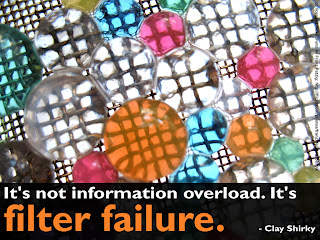 Accounting: the process of communicating financial information (through financial statements) about a business entity to internal and external users, like managers and shareholders; but how does technology affect the practice? This sounds like a repeated tune, doesn't it? As my faithful and loyal readers seen in my last post upon the role technology plays in "Big Four" firms like KPMG, times have changed upon how accountants conduct business. "Out" with the calculators and mountains of blank paperwork waiting to be filled out and "in" with the digital age. But how does technology's influence in a "Big Four Firm" compare to its role in one that isn't?
Accounting: the process of communicating financial information (through financial statements) about a business entity to internal and external users, like managers and shareholders; but how does technology affect the practice? This sounds like a repeated tune, doesn't it? As my faithful and loyal readers seen in my last post upon the role technology plays in "Big Four" firms like KPMG, times have changed upon how accountants conduct business. "Out" with the calculators and mountains of blank paperwork waiting to be filled out and "in" with the digital age. But how does technology's influence in a "Big Four Firm" compare to its role in one that isn't?Can there truly be a large difference in technology usage if the firm is not a "Big Four Firm"? Is technology the edge? Tiffany Harvey, a tax associate at the top 20 (but not Big Four) ranked accounting firm Reznick Group, was able to shed some light upon how significant technology is in the firms that stand outside the "Big Four" bracket.
Technology Allows Regional Firms to 'Hold Their Own' against Big Four Heavy-Weights
As a tax associate of only a few months with Reznick Group, Tiffany Harvey is a recent graduate of the University of Maryland and Robert H. Smith Business School, and has had the liberty of gaining experience with both KPMG (through internships) and with Reznick Group (currently working full-time). Similar to Lawrence Hui in my first cover of technology in accounting firms, Harvey has gained her credibility through obtaining 150-credits, but is awaiting her time to take on the behemoth that is the CPA (Certified Public Accountant) exam until after her "first busy season" subsides (based on the location of the videos, you can definitely tell that this season was certainly a "busy" one).
But did technology serve as a worthy conduit to allow Harvey to withstand the brutal tax season? Yes, and better-yet, it did majority of the work for her!
Sophisticated Software and Trainings Makes Tax Season Easier Than Ever
Contrary to Lawrence Hui's experiences, and those individuals basing their assumptions on slippery slopes about Non-Big Four firms, Reznick Group has given Harvey a plethora "firm-specific" knowledge to assure that work is done at an efficient rate at the regional firm. With the software and trainings being given to Harvey, it seems as though the "old dog" isn't just learning new tricks; it's adding a few years of life to the prime-time pup.
What Specific Hardware Benefits a Reznick Group Associate during Busy Season?
Your in the transition stage between the first quarter and the second where you, as a tax associate, experience some of the busiest times of the year when filing taxes. What could make life a little easier when providing a service to an important client? How about "Dual Monitor" technology (specific name has to be held confidential for corporate-competition reasons)? Tiffany Harvey goes further in-depth about one of the most amazing and prolific pieces of technology the accounting industry has ever seen! Photograph of the hardware follows synopsis of technology.
 |
| A Reznick Group Tax Associates' Typical Desk with the "Dual- Monitor" technology as the centerpiece |
Even with Technology of this Caliber, Tax and Audit Associates with CPA are Needed
 |
| Quarter-Incremented Annual Rate of Individuals Obtaining CPA |
Technology Allows Regional Firms, like Reznick Group, to Carry Their Weight against Big Four Heavy-Weights
 |
| Example of the NMTC Interactive Map displaying the tax credit opportunity in Denton Community , University of Maryland |
Through the interactive map (found through the webpage or by clicking on the hyper-linked text above) allows the average person to research where a tax credit is available for a new private sector investment in economically distressed communities (foreshadowing future expenses for entrepreneurs). Technology like this pretty much encapsulates what technology is capable of for a regional firm as a whole, along with it's benefactor role for the individual associates in the workplace.
Proclaimed loud and clear from a profession who has been at both types of accounting firms (Big Four and Non-Big Four), technology is shown to have affected every aspect of the accounting practice from advertising the firm to assisting individual associates with customer service. So with all the softwares, trainings and hardware available to make life easier, why aren't more people pursuing careers as accountants? Maybe it's the CPA exam's difficulty...


